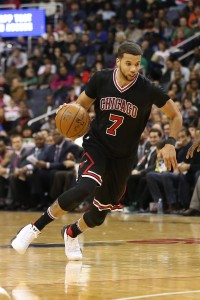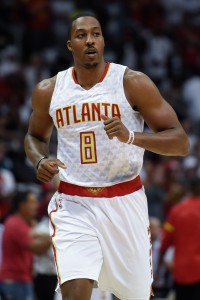Hoops Rumors is breaking down the 2017 offseason for all 30 NBA teams, revisiting the summer’s free agent signings, trades, draft picks, departures, and more. We’ll evaluate each team’s moves from the last several months and look ahead to what the 2017/18 season holds for all 30 franchises. Today, we’re focusing on the Charlotte Hornets.
Signings:
Camp invitees:
Trades:
Draft picks:
- 1-11: Malik Monk — Signed to rookie contract.
- 2-40: Dwayne Bacon — Signed to three-year, minimum salary contract. Third year non-guaranteed.
Departing players:
Other offseason news:
- Assistant general manager Chad Buchanan hired away by the Pacers.
Salary cap situation:
- Remained over the cap all offseason. Carrying approximately $116MM in guaranteed salary, pushing them close to the tax line.
- Portion of mid-level exception ($4.89MM) and full bi-annual exception ($3.29MM) still available.
Check out the Charlotte Hornets’ full roster and depth chart at RosterResource.com.
Story of the summer:
The Hornets followed up a feel-good return to relevance with an uninspired effort last season, leaving fans of the rebranded franchise wondering if the club’s brief dalliance with the postseason was anything more than a simple aberration.
In the wake of that 2016 playoff appearance, the club lost a handful of impactful veterans, won 12 fewer contests, and ultimately returned to the lottery wondering what went wrong.
This summer, then, served as a critical indicator of the club’s frame of mind heading forward, and it didn’t take long for general manager Rich Cho to make it loud and clear that he has no intention of blowing up the squad’s current core anytime soon.
The Hornets were aggressive this summer, pulling off one of the biggest heists of the offseason, drafting pragmatically, and generally supplementing their lineup with genuinely complementary players.
At a time when most fringe playoff squads with little cap flexibility might consider blowing things up and starting a new Process, that’s inspiring in itself.
Read more
Key offseason losses:
The Hornets came away from the summer mostly unscathed, but the loss that they’ll notice most is that of veteran Marco Belinelli. The Italian two guard led the club’s reserve corps, averaging 10.4 points per game in 74 contests and providing reliable three-point shooting.
The loss of Miles Plumlee is significant for different reasons. The fact that Cho found a way to pawn off the three-year, $37.5MM hot potato that is Plumlee’s contract – just months after acquiring it from Milwaukee – is national holiday-level impressive.
Another notable change to the team comes on the depth chart. Last season Charlotte trotted out Ramon Sessions and Brian Roberts as reserve point guards but neither were particularly effective spelling Kemba Walker. The club even gave G League star Briante Weber a shot at the role but were ultimately underwhelmed there, too. All three are gone for 2017/18.
Key offseason additions:
The last half-decade of Dwight Howard‘s career hasn’t exactly been filled with kittens and rainbows, but the public’s perception of the fallen superstar has over-corrected. The 31-year-old averaged 13.5 points and 12.7 rebounds per game last season on a squad that didn’t particularly want or need him.
Now back under the tutelage of former coach Steve Clifford – who guided Howard during his Magic days – the eight-time All-Star will see his best opportunity to succeed in years. No longer just that dude somebody invited to the party out of obligation, Howard will join a team that actually looks forward to including him and maybe even featuring him in their offense (although let’s not get too crazy).
Another promising move the Hornets made was drafting Malik Monk out of Kentucky. The fact that Charlotte filled an obvious need with an established college player capable of producing out of the gates speaks to the club’s willingness to improve as soon as possible. Monk isn’t a project — not on the offensive side at least. He’s a legitimate scorer who can share some of the scoring burden with Walker.
Finally, dissatisfied with their backup point guard situation, the Hornets went out and picked up Michael Carter-Williams. One of many victims of the chaos in Chicago last season, Carter-Williams arrives in Charlotte as a 26-year-old former Rookie of the Year. Even if the guard never does quite live up to the expectations he set for himself after Year 1, he’s a steal at $2.7MM. Julyan Stone, pried away from an Italian team, will provide additional depth at point guard.
Outlook for 2017/18:
The Hornets put forth a decent start to last season, but started to struggle just before the midway point. This summer they added to their core with established pieces whose skill-sets won’t interfere with any of the team’s incumbent go-to talents.
The fact that the returning lineup has had several years to grow and gel together will serve the Hornets well as they battle with the likes of the Pistons and Sixers for the last few playoff spots. The fact that the new additions will bolster what’s quietly become one of the top-down deepest teams in the East could get them back where they belong: the postseason.
Salary information from Basketball Insiders used in the creation of this post. Photos courtesy of USA Today Sports Images. Luke Adams contributed to this post.

